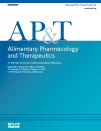Probiotics in Digestive Diseases: Focus on Lactobacillus GG.
No Comments
Reading Time: 3 minutes
A review article in Gastroenterologica e Dietologica explores the evidence for the use of LGG as a therapeutic probiotic.[1] Probiotics are becoming increasingly important…






